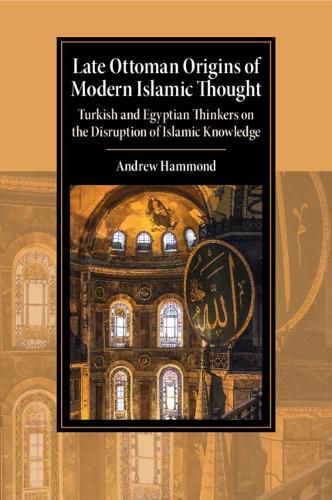Readings Newsletter
Become a Readings Member to make your shopping experience even easier.
Sign in or sign up for free!
You’re not far away from qualifying for FREE standard shipping within Australia
You’ve qualified for FREE standard shipping within Australia
The cart is loading…






In this major contribution to Muslim intellectual history, Andrew Hammond offers a vital reappraisal of the role of Late Ottoman Turkish scholars in shaping modern Islamic thought. Focusing on a poet, a sheikh and his deputy, Hammond re-evaluates the lives and legacies of three key figures who chose exile in Egypt as radical secular forces seized power in republican Turkey: Mehmed Akif, Mustafa Sabri and Zahid Kevseri. Examining a period when these scholars faced the dual challenge of non-conformist trends in Islam and Western science and philosophy, Hammond argues that these men, alongside Said Nursi who remained in Turkey, were the last bearers of the Ottoman Islamic tradition. Utilising both Arabic and Turkish sources, he transcends disciplinary conventions that divide histories along ethnic, linguistic and national lines, highlighting continuities across geographies and eras. Through this lens, Hammond is able to observe the long-neglected but lasting impact that these Late Ottoman thinkers had upon Turkish and Arab Islamist ideology.
$9.00 standard shipping within Australia
FREE standard shipping within Australia for orders over $100.00
Express & International shipping calculated at checkout
In this major contribution to Muslim intellectual history, Andrew Hammond offers a vital reappraisal of the role of Late Ottoman Turkish scholars in shaping modern Islamic thought. Focusing on a poet, a sheikh and his deputy, Hammond re-evaluates the lives and legacies of three key figures who chose exile in Egypt as radical secular forces seized power in republican Turkey: Mehmed Akif, Mustafa Sabri and Zahid Kevseri. Examining a period when these scholars faced the dual challenge of non-conformist trends in Islam and Western science and philosophy, Hammond argues that these men, alongside Said Nursi who remained in Turkey, were the last bearers of the Ottoman Islamic tradition. Utilising both Arabic and Turkish sources, he transcends disciplinary conventions that divide histories along ethnic, linguistic and national lines, highlighting continuities across geographies and eras. Through this lens, Hammond is able to observe the long-neglected but lasting impact that these Late Ottoman thinkers had upon Turkish and Arab Islamist ideology.